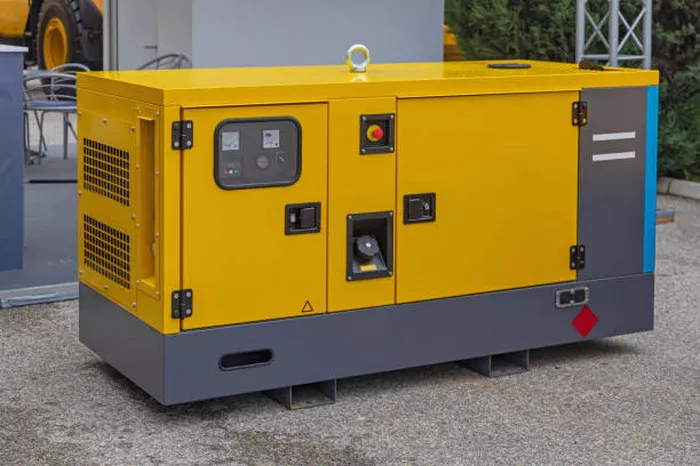For RV enthusiasts, a reliable generator is essential for providing power while on the road or at a campsite. Whether you need to run air conditioning, charge electronic devices, or power kitchen appliances, choosing the right RV generator is crucial. With various options available, selecting the best one depends on several factors, including power output, fuel type, noise level, portability, and price.
This article will guide you through the key considerations when purchasing an RV generator and review some of the best options on the market.
Factors to Consider When Buying an RV Generator
1. Power Output (Wattage)
Generators come with different power capacities, typically measured in watts. RV generators usually range between 2,000 to 7,000 watts. To determine the right wattage:
- List all the appliances you plan to run.
- Check their wattage requirements.
- Add up their running watts and include the highest starting wattage of any motor-driven appliance (e.g., air conditioner).
- Choose a generator that can handle at least that total wattage.
2. Fuel Type
RV generators are powered by gasoline, diesel, or propane. Some dual-fuel models offer flexibility. The pros and cons of each are:
- Gasoline: Readily available, but burns quickly and requires frequent refueling.
- Diesel: More fuel-efficient, lasts longer, and is safer to store.
- Propane: Cleaner burning and quieter, but provides less power per gallon compared to gas or diesel.
- Dual-Fuel/Hybrid: Offers versatility by allowing you to switch between fuels.
3. Noise Level
Quiet generators are ideal for campgrounds. Measured in decibels (dB), a noise level under 60 dB is recommended. Inverter generators are generally quieter than conventional models.
4. Portability and Size
Consider the weight and dimensions of the generator. Compact and lightweight models are easier to transport and store. Built-in wheels and handles enhance mobility.
5. Fuel Efficiency and Runtime
Longer runtimes reduce the need for frequent refueling. Check the fuel tank size and fuel consumption rate. Inverter generators adjust their engine speed to match the load, improving efficiency.
6. Price and Warranty
Generators vary in cost, from a few hundred to several thousand dollars. While budget-friendly options exist, investing in a high-quality model can save money in the long run. Also, check the manufacturer’s warranty for peace of mind.
Top 5 Best RV Generators
Based on the above factors, here are the best RV generators currently available:
1. Honda EU2200i – Best Overall
- Power Output: 2,200 watts
- Fuel Type: Gasoline
- Noise Level: 48-57 dB
- Weight: 47 lbs
- Features: Fuel-efficient, quiet, parallel capability for increased power
- Pros: Reliable, lightweight, excellent fuel efficiency
- Cons: Expensive, limited wattage for high-power appliances
2. Champion 3400-Watt Dual Fuel Inverter – Best Dual Fuel
- Power Output: 3,400 watts (starting), 3,100 watts (running)
- Fuel Type: Gasoline/Propane
- Noise Level: 59 dB
- Weight: 95 lbs
- Features: Dual-fuel capability, electric start, inverter technology
- Pros: Flexible fuel choice, good runtime, RV-ready outlet
- Cons: Heavier than other inverter models
3. Westinghouse iGen4500 – Best for Power and Efficiency
- Power Output: 4,500 watts (starting), 3,700 watts (running)
- Fuel Type: Gasoline
- Noise Level: 52 dB
- Weight: 98 lbs
- Features: Remote start, fuel-efficient, high power
- Pros: Great fuel economy, ideal for running AC units, quiet
- Cons: Heavier, slightly costly
4. WEN 56200i – Best Budget Option
- Power Output: 2,000 watts
- Fuel Type: Gasoline
- Noise Level: 51 dB
- Weight: 48 lbs
- Features: Inverter technology, eco-mode, lightweight
- Pros: Affordable, quiet, easy to carry
- Cons: Limited power output
5. Generac GP3000i – Best Compact Model
- Power Output: 3,000 watts (starting), 2,300 watts (running)
- Fuel Type: Gasoline
- Noise Level: 58 dB
- Weight: 59 lbs
- Features: Inverter technology, PowerRush for extra startup wattage
- Pros: Compact, good value, ideal for small to mid-sized RVs
- Cons: Not suitable for large power loads
Conclusion
Choosing the best RV generator depends on your specific power needs, budget, and fuel preference. If you want a top-tier model, the Honda EU2200i is a quiet and reliable option. For those needing more power and fuel flexibility, the Champion 3400-Watt Dual Fuel generator is a great pick. Budget-conscious buyers may opt for the WEN 56200i, while the Westinghouse iGen4500 offers high power with excellent efficiency.
Before making a purchase, always check the wattage requirements of your RV appliances and consider noise levels, fuel type, and portability. A well-chosen generator ensures a smooth and enjoyable RV experience, providing the comfort of home wherever your travels take you.

